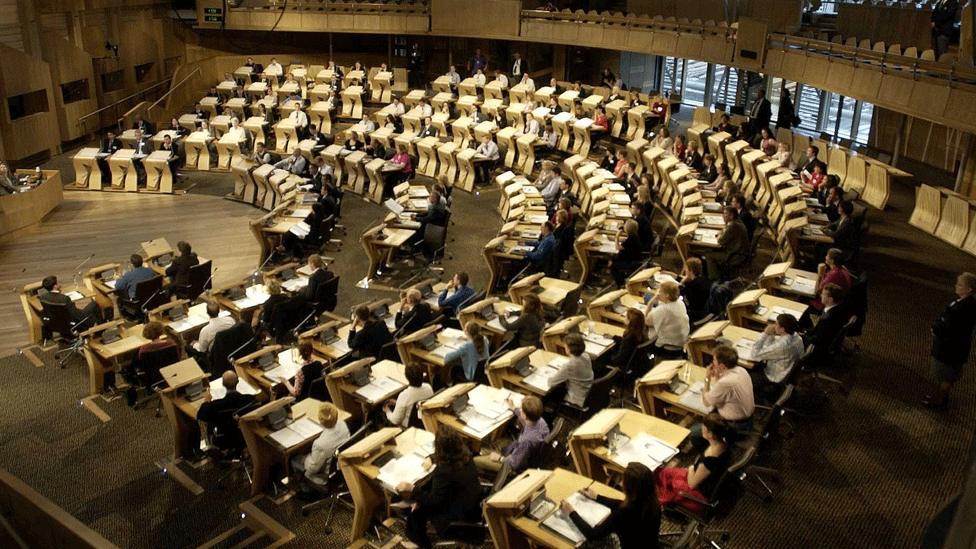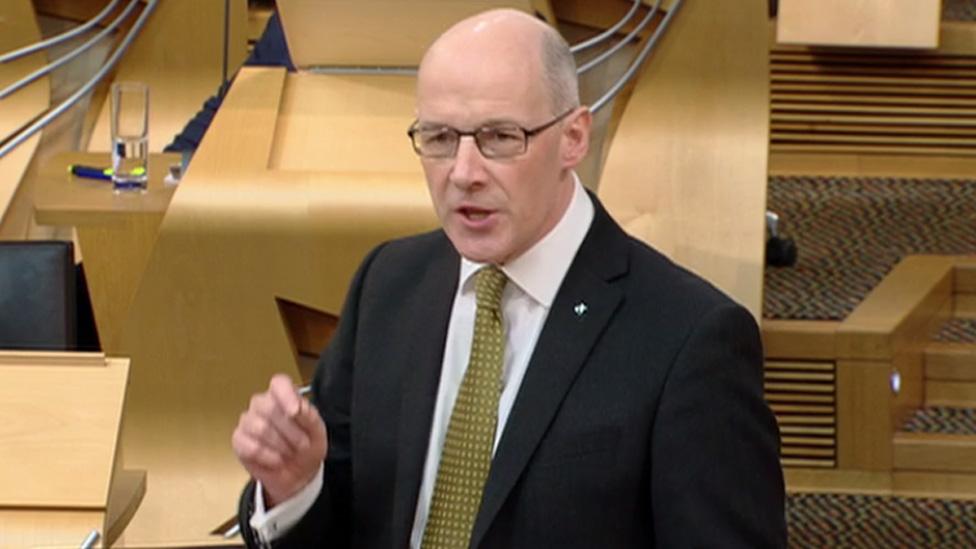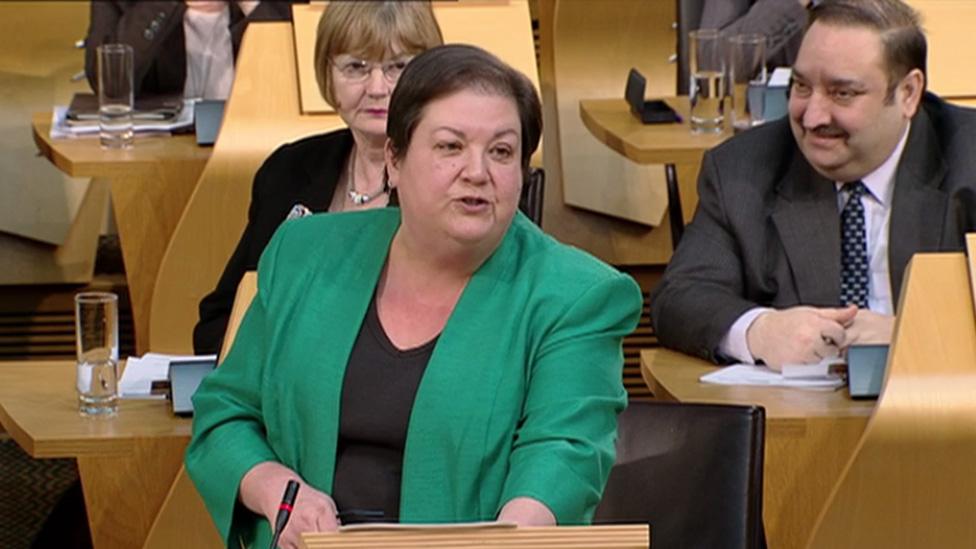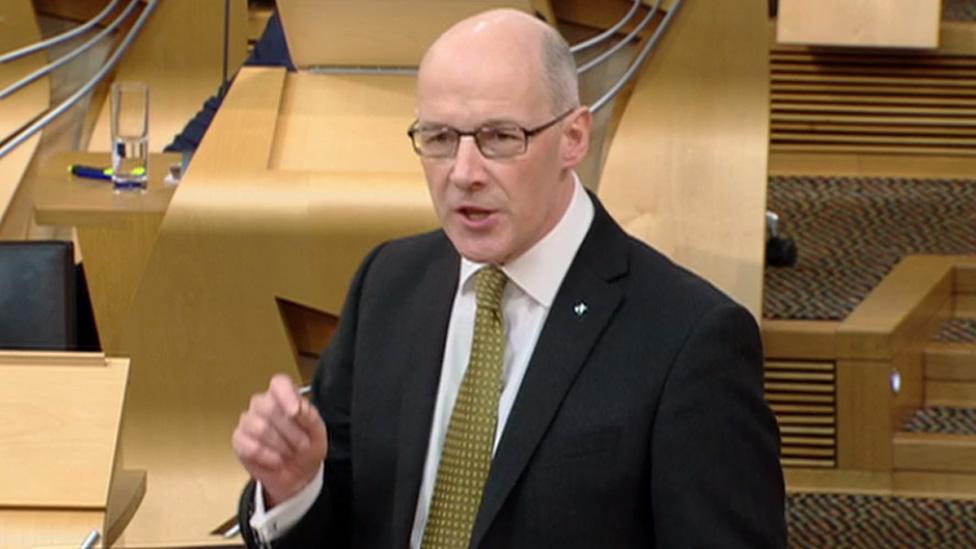Behind the scenes at Holyrood
- Published

MSPs have been discussing the 2016/17 Scottish budget
Attention in parliament tends to focus, understandably, upon the elected tribunes of the people.
After all, they have the vote, they have the stage, they have the limelight (or its contemporary environmental equivalent.)
But, behind the scenes, there are sundry worthy toilers who assist the path of democracy. The Official Report. The Office of the Clerk. SPICE.
The latter is the Scottish Parliamentary Information Centre, external. You will occasionally hear this fine team referenced by MSPs - generally when the SPICE info happens to coincide, probably accidentally, with whatever tendentious case the politicians are advancing.
The SPICE girls and boys (OK, sorry, but you knew I was heading there) site themselves at the very core of the parliamentary campus, ready to offer their dispassionate expertise to all sides in the Holyrood merry-go-round.
But today there was an offer of another kind displayed outside one of the collective parliamentary offices in Holyrood's Garden Lobby.
It asked passers-by whether they were preparing to stand down from parliament. It then indicated readiness to tender advice on the procedure to follow as they left. (No, stuff about closing their office and releasing staff. Not, "shut the door behind you.")
Helpful, no doubt. Valuable, certainly. But a rather abrupt reminder, nonetheless, that political careers can be truncated. Sometimes by personal choice. More commonly, at the behest of the electorate.
One element which may well influence voters' choice is taxation - the very topic under debate by MSPs this afternoon as they considered the Scottish Budget Bill at Stage One in the chamber.

Mr Swinney said he would not raise taxes for lower-paid workers

Jackie Baillie described Mr Swinney's budget as "austerity on stilts"
Was it my imagination? Or did one or two MSPs look a little misty-eyed? Perhaps they had seen that brief reminder of political transience, posted in the Garden Lobby? No, you're right. It was my imagination.
The debate, itself, was decidedly lively: undoubtedly, a consequence of the new powers which have already come Holyrood's way and those, perhaps, hereafter.
The Finance Secretary, John Swinney, was powerful and passionate, especially when deviating from his planned script. He would not, he glowered, add to the financial burden faced by hard-pressed workers through increasing income tax, as Labour and the Liberal Democrats have proposed.
Mr Swinney was also notably blunt re Labour's plan to rebate £100, through councils, to the lowest paid. It was, said the Finance Secretary, unplanned, unworkable, possibly illegal - and might, in itself, result in a further income tax levy. Labour disputes all those claims - and says it has advice to the contrary.
Better together?
Labour's Jackie Baillie was meticulous in characterising the issue as a straightforward choice. Ditto Willie Rennie of the Liberal Democrats who, in a rather effective passage, said that Mr Swinney's familiar refrains no longer applied. Any cuts could now be traced to him, not Westminster.
Not for the first time, the wittiest speech came from Murdo Fraser of the Conservatives. Mock gloomily, he depicted the Scottish Tories, alone and palely loitering as they sought to counter the tide of tax increasers.
No longer, he chortled. Now, he said, it gladdened his Tory heart to welcome John Swinney as a recruit. They were, he satirised, shoulder to shoulder. Or, rather, Better Together. Mr Swinney studied his papers assiduously, while permitting himself the faint shadow of a tiny smile.
- Published3 February 2016
